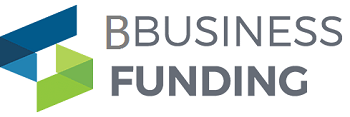If you have never taken the time to learnabout personal financial planning, then all other types of financial planning that might be necessary in work, business, and life, will be inaccessible to you.
This is because effective understanding of financial planning, of any kind, relies on understanding the basic principles of personal financial planning. The personal domain is where the most fundamental planning takes place, and where the basic principles most clearly apply.
Next Level Daily, a company that creates products such as daily planners and habit journals, note that personal planning – financial or otherwise – is so important precisely because it varies from person to person. The most effective techniques for managingyour money might not be the most effective techniques for the next person. There are fundamental principles that apply in all cases, but the realization of those principles can vary.
Once you are aware of the planning techniques that work best for you, financial planning becomes not only possiblebut effective as well. This is why personal finance is one of the most important things to be able to manage.
Income and Expenses
Task planning and financial planning share a lot in common (the latter is often integrated into the former) but there is something that defines financial planning – the eternal values of income and expenses. This is indeed the first tip beginners should come to grips with – understand your expenses.
The place to begin is to understand your total expenses and your total income. This will identify the most obvious problems right away (as well as the most important ones to correct).
Naturally, if your expenses exceed your income, then you have a fundamental problem. It will become clear that there is a set amount of expenditure that you need to cut. Your financial planning begins here.
Cash Flow
Another wise thing to do when you manage your income and expenses is to leave yourself a little leeway. Your income should not match your expenses – it should comfortably exceed it. This is because things can vary, and unexpected costs are always a possibility.
Leaving yourself leeway will also promote what is known as a healthy cash flow. Your personal cash flow is the second thing to consider when you begin financial planning.
Your income might exceed your expenditures but what is the timing of every payment that you need to make. If you ever need to wait until a certain amount is earnedbefore a specific bill can be paid (leading to late payments) then you might make enough money overall, but you have a cash flow problem.
After your financial planning has accurately identified your income and expenses, the next thing to do is to promote a healthy cash flow.
Set a Budget
You’ll no doubt have heard of budgeting.It’s naturally an essential part of any financial plan, but it should come only after income, expenses, and cash flow have been ascertained.
This doesn’t mean, however, that it’s any less important. You can think of income, expenditure, and cash flow analysis as ascertaining where you are at the present moment – your budget is how you ensure your financial future.
Your budget will ascertain how much you spend and when you are going to spend it. Accordingly, it needs to take into account many other factors such as your financial goals, and your expected investments. You should determine these with reference to your income and expenses, and then work them into the budget.
As you can see, financial planning is all about doing things in the right order – there is no sense running before you can walk.

